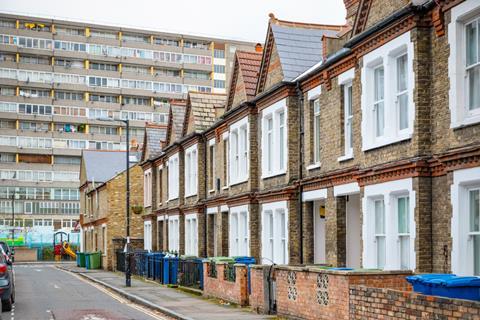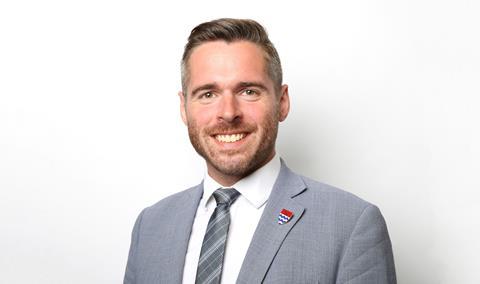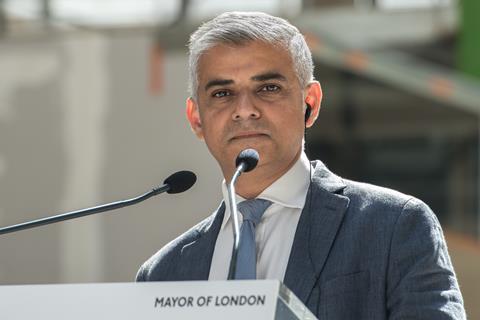Mayor Sadiq Khan says money needed to ‘flip’ unsold new homes into affordable housing

A housing taskforce set up under the auspices of London Labour mayor Sadiq Khan has called on the government to provide nearly £5bn to buy up or convert unsold properties in the wake of the covid-crisis.
The taskforce set up by London’s deputy mayor for housing, Tom Copley, to tackle the fallout from the coronavirus lockdown in the London housing market, has called for a £4.9bn one-off fund to allow councils and housing associations to become “buyers of last resort” when demand falters or convert homes for sale into affordable homes for rent.
The fund would allow for a £3.5bn “buyer of last resort” programme allow councils and housing associations to buy up unsold private homes at cost price, guaranteeing the delivery of 9,200 homes in the next two years. It would also include a £1.33bn “tenure conversion” programme converting housing currently planned for low-cost ownership and sale into homes for social and low-cost rent.
The taskforce said the programmes would together deliver 34,597 homes, split between 70% at social rent levels, 20% at the London Living Rent, and 10% London Shared Ownership for the remainder of the current affordable homes programme to 2021/22. City Hall’s analysis shows this would allow for 16,899 conversions from currently agreed tenures.

Tom Copley (pictured, left) told Housing Today in May that the taskforce, made up of local authority, housing association, housing industry and union figures from the capital, was likely to recommend “flipping” unsold private homes into homes for rent.
The funding is required to address the likely difficulty of using the existing model of cross-subsidy, whereby the profit from homes for sales pays in large part for new affordable homes, over the next couple of years when the housing market is expected to significantly weaken.
The taskforce concluded the capital also required a five-fold ramping up of funding for new affordable homes through the government’s affordable housing programme from 2022 in order to meet housing need when the immediate crisis had passed. Currently the government gives the Greater London Authority just under £1bn a year for new affordable homes, a figure the taskforce said should be increased, also to £4.9bn, spent annually between 2022 and 2032.
The Greater London Authority (GLA) said these schemes would enable councils, housing associations and private developers to maintain housing delivery during the current period of market uncertainty as well as helping to address the longstanding backlog in housing supply which has built up over many years in London. Safeguarding construction will also protect jobs ahead of the Government’s furlough scheme being wound down later this year.
The government has already committed to an affordable homes programme increase of around a third from the current level, however this will still fall far short of the demand of the GLA. The government’s programme for the whole country for five years is £12bn, whereas the GLA is demanding £25bn for the capital alone in that period.

Mayor of London, Sadiq Khan (pictured, right) said the taskforce had demonstrated broad support across business, trades unions and the housing sector for greater Government backing for new genuinely affordable homes, and called on chancellor Rishi Sunak to put building new homes at the heart of a plan to kick-start the recovery in tomorrow’s economic statement.
Khan said: “I want London’s housing sector to do more than just bounce back, I want us to emerge from this crisis with a greater resolve to deliver the council, social and other genuinely affordable homes that London so desperately needs and to protect construction jobs. This investment package would help make that a reality.”
Taskforce member Helen Evans, chair of the G15 group of major London associations, and chief executive of Network Homes, said: “After we emerge from this crisis, the need for social homes for a broad range of people will be immediate; it’s become even clearer that our essential workers, former rough sleepers, those who are suffering an economic shock and those in overcrowded housing need a steady supply of affordable, especially social, homes.
“We need certainty that funding for social homes will be available for the wide range of people who need it, regardless of the performance of the private market.”










No comments yet